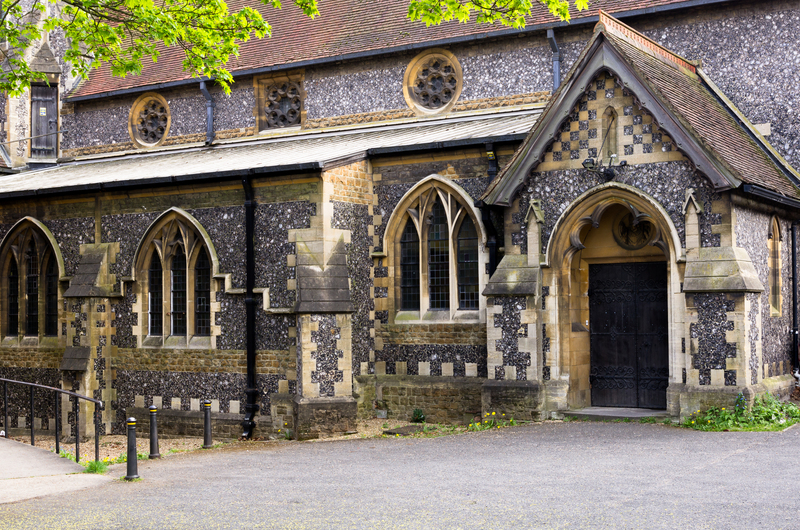Proven Steps to Declutter Before Relocating Residences
Posted on 10/06/2025
Proven Steps to Declutter Before Relocating Residences
Moving to a new home marks an exciting new chapter in life, but it also comes with a set of challenges--one of the biggest being the task of decluttering. Addressing unnecessary possessions prior to relocation can make your move stress-free, cost-effective, and organized. Whether you are relocating across town or to another state, employing effective decluttering strategies is essential. In this comprehensive guide, you'll discover proven steps to declutter before moving residences, ensuring your transition to the new abode is smooth and clutter-free.

Why Decluttering Before Relocating is Essential
- Reduces Moving Costs: Fewer items mean reduced moving load, saving you money on packing supplies, transportation, and labor.
- Saves Time: Less to pack and unpack translates into efficient relocation and faster settlement in your new space.
- Minimizes Stress: An orderly environment and clear sorting process relaxes your mind during an otherwise hectic period.
- Creates a Fresh Start: Relocating with only the essentials can inspire a fresh perspective in your new home.
- Enables Donation or Sale of Unused Items: Passed on possessions can benefit others, while sales can offset moving expenses.
Step 1: Plan Your Decluttering Strategy
Before launching the process, take the time to devise an organized approach:
- Set a Timeline: Begin decluttering at least a month prior to your moving date. Tackling a room or a category each week helps prevent last-minute chaos.
- Gather Supplies: Stock up on boxes, trash bags, markers, stickers, and cleaning supplies. Assign boxes for items to keep, donate, sell, recycle, and discard.
- Map Your New Space: Visualize your future home layout. This aids in deciding what fits and works in the new environment.
Pro Tip:
Use a checklist or mobile app to track your progress for each room and category.
Step 2: Sort Room by Room
Decluttering becomes overwhelming if attempted in a single sweep. Instead, tackle the process one space at a time:
- Living Room: Sort through books, decor, electronics, DVDs, and furniture. Retain only what suits your lifestyle and new living room aesthetics.
- Kitchen: Expired pantry items, duplicate utensils, and rarely used appliances can be downsized.
- Bedrooms: Assess clothing, linens, accessories, and furniture. Apply the "one-year rule"--if you haven't used it in the last year, seriously consider letting go.
- Bathroom: Safely dispose of expired toiletries, medications, and unnecessary supplies. Retain only daily essentials.
- Storage Areas (Garage, Attic, Basement): Review tools, holiday decor, old memorabilia, and equipment. Be ruthless--these zones often accumulate the most clutter.
- Home Office: Shred outdated documents, recycle old electronics, and donate excess supplies.
Tip:
*Try the "Four-Box Method" in every room: Have containers labeled Keep, Donate/Sell, Trash, and Relocate (for items that belong elsewhere in your current home).*
Step 3: Evaluate Each Item
Decision-making is at the heart of effective decluttering. Use these criteria to assess each possession:
- Do I Use This Regularly? Only practical, regularly-used items deserve a place in the moving truck.
- Does This Have Sentimental Value? Be selective with keepsakes. Limit sentimental possessions to those with true meaning.
- Is It in Working Condition? Broken or irreparable items should be recycled or discarded.
- Will It Fit or Match the New Space? Consider measuring furniture and ensuring style compatibility.
- Can I Borrow or Replace It Later? Some specialty items can be rented or borrowed instead of carried across residences.
Not sure about an object? Place it in a "Maybe" box and revisit at the end of your decluttering session.
Step 4: Organize Items for Donation, Sale, or Disposal
With your possessions sorted, categorize further for optimal downsizing:
- Donate: Usable clothing, kitchenware, books, and toys are often welcomed by local charities, schools, and shelters.
- Sell: Valuable or lightly-used items like designer clothing, electronics, or furniture can be listed on platforms such as Facebook Marketplace, Craigslist, eBay, or local consignment shops.
- Recycle: Responsibly recycle electronics, batteries, and textiles at dedicated facilities or local collection points.
- Discard: Safely dispose of hazardous materials and unusable items as per community guidelines.
For a streamlined process: Schedule pick-ups with donation centers or arrange for junk haulers to remove bulk waste.
Step 5: Pack Strategically After Decluttering
With unnecessary items gone, it's time to prepare what remains for the move:
- Use High-Quality Packing Materials: Protect fragile belongings with sturdy boxes, bubble wrap, and packing paper.
- Label Everything: Mark boxes by room and highlight contents for efficient unpacking.
- Pack an Essentials Bag: Set aside a bag with immediate necessities--medications, toiletries, clothing, chargers, documents--for the first few days in your new residence.
- Pack by Category or Room: Group similar items to simplify both loading and settling in.
Packing Tip:
*If you have not used an item throughout the decluttering process, reconsider packing it!*
Step 6: Digitize and Minimize Paper Clutter
Paperwork can quickly accumulate and is tough to manage during home transitions. Here's how to tackle it:
- Scan Important Documents: Digitize tax records, legal papers, old photographs, and receipts. Use secure cloud storage for easy access.
- Sort and Shred: Safely dispose of unnecessary paperwork with personal information to prevent identity theft.
- Keep Only What's Essential: Carry originals of crucial documents (passports, deeds, insurance paperwork) in a dedicated, secure folder for the move.
Step 7: Enlist Help and Stay Motivated
Decluttering can be a mammoth task, but you don't have to do it alone:
- Gather Family and Friends: Sorting together can make the process enjoyable and efficient. Assign tasks by strength or preference.
- Hire Professional Organizers: If time is short or the task daunting, professional declutterers bring expertise and objectivity.
- Set Achievable Goals: Celebrate milestones--clearing a room, donating a carload, packing the first box--to stay motivated throughout the journey.
Reward yourself with small treats after major achievements - a coffee break or a favorite meal.
Bonus: Digital and Sentimental Belongings Declutter Checklist
- Old Electronics: Decommission and recycle unused gadgets and outdated chargers.
- Photos and Memorabilia: Digitize photographs and consolidate keepsakes into a single, space-saving box. Consider creating digital albums and sharing with family.
- Online Subscriptions: Update your address on digital accounts and cancel memberships you no longer need before relocating homes.
Common Mistakes to Avoid When Decluttering Before a Move
- Procrastinating: Leaving decluttering until the last minute leads to rushed decisions and increased moving stress.
- Trying to Do Everything in One Day: Spread out tasks over several days or weeks for sustainable progress.
- Over-Sentimentality: Keeping everything with a memory attached can defeat the purpose of organizing for a new start.
- Not Making a Plan: A lack of strategy can cause confusion and unnecessary retention of clutter.
Final Thoughts on Decluttering Before Relocating Residences
Implementing a structured decluttering process before moving residences will dramatically ease your transition while refreshing your living environment. Each step creates clarity, frees your mind, and reduces moving-related anxieties.
- Start early and break the task into manageable segments.
- Let go of the unnecessary to welcome a brighter, more organized beginning.
- Embrace the opportunity to curate your possessions with intention--every item you relocate should add value to your new home.
By following these proven steps for decluttering before relocating homes, you ensure that you're not only moving your belongings, but also embracing a clutter-free, purposeful lifestyle in your new residence.

Frequently Asked Questions (FAQ): Decluttering Prior to a Move
- How far in advance should I start decluttering for a move?
Begin at least four to six weeks prior to your moving day. This allows reasoned decision-making and eliminates last-minute pressure. - What are the best ways to get rid of unwanted stuff when moving?
Donating, selling online, organizing a garage sale, recycling, and scheduling junk removal services are all effective methods. - How do I deal with sentimental possessions I no longer have space for?
Consider digitizing photos or memorabilia, gifting sentimental items to family, or creating a keepsake box of select treasures.
Start Decluttering for a Smoother Move Today!
By taking proven, systematic steps to declutter before relocating residences, you pave the way for a hassle-free transition and a happier new home. Less clutter, less stress; more space, more freedom!
Latest Posts
Packing Perfection: How to Move Like a Seasoned Mover
The Technicalities That Make Piano Moving Tricky
Proven Steps to Declutter Before Relocating Residences
Unlocking the Secrets to a Stress-Free Bed and Mattress Move



